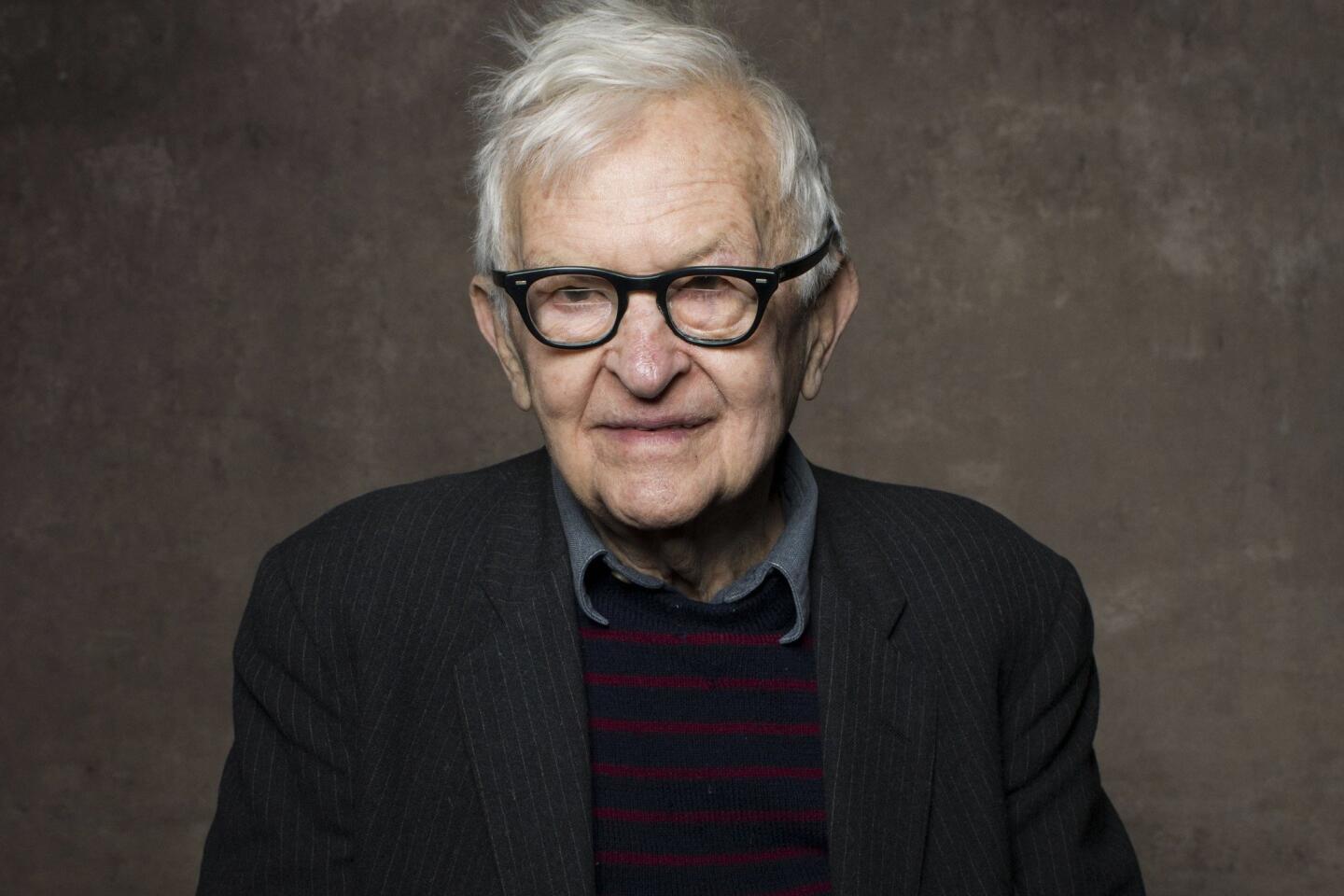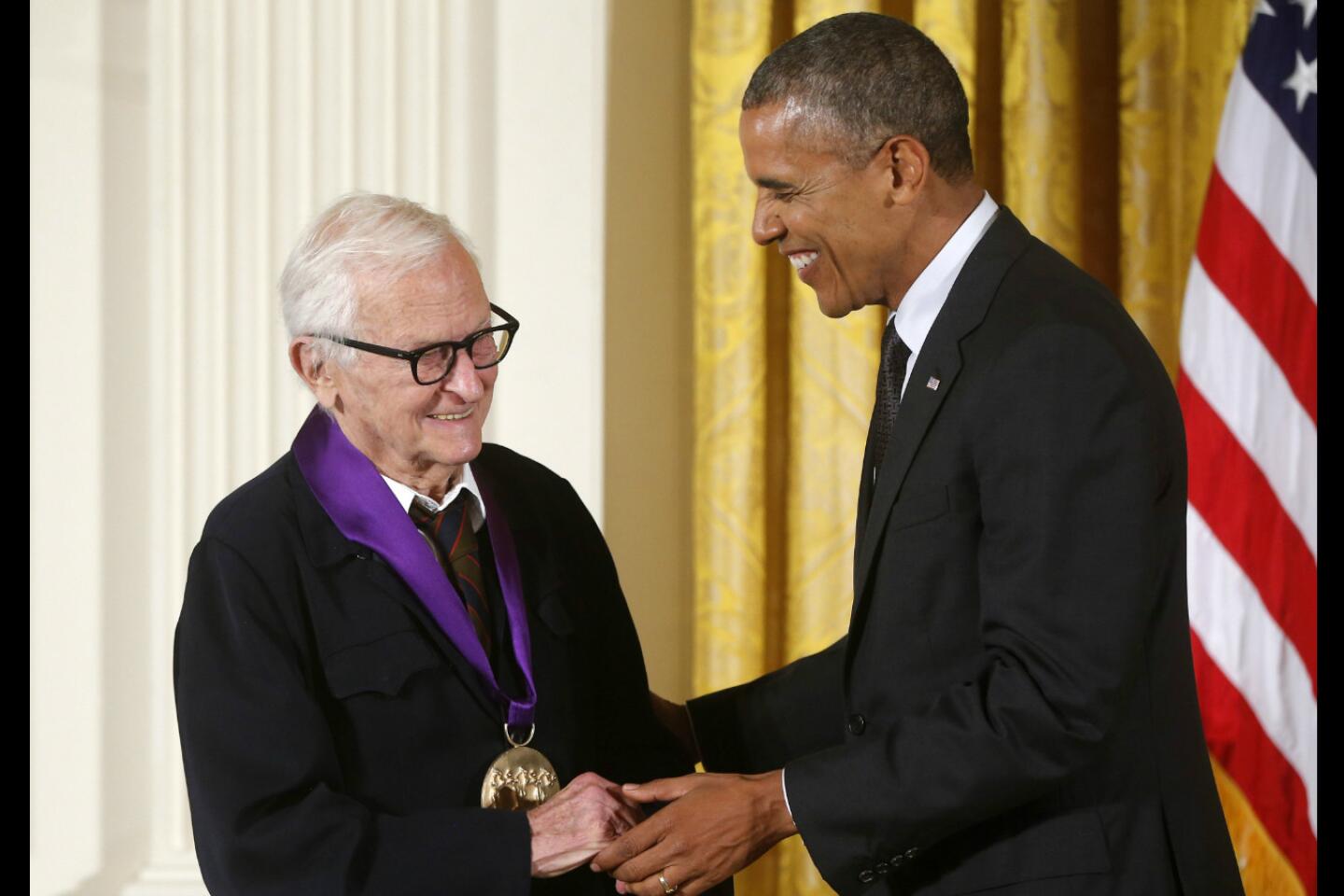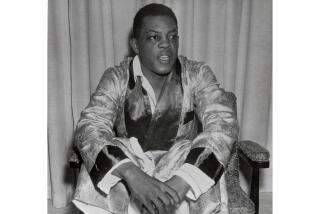Remembering Albert Maysles, documentarian and truth seeker
- Share via
It’s not often that a filmmaker helps change the face of an art form, but that was the case with Albert Maysles.
Maysles, who died March 5 at age 88, was a pioneer in a style of documentary filmmaking variously called cinema verite or direct cinema. Collaborating with his brother David, who died in 1987, and others, he worked in a way that avoided interviewing and setup situations and placed a premium on strict observation.
“I don’t go out to catch people,” he told a UCLA class several years ago. “I go out to find them.”
Though his films did not get Oscar attention — only a 1972 short, “Christo’s Valley Curtain,” was nominated — they often captured public attention.
His best known works included “Salesmen” (1969), about a quartet of door-to-door Bible salesmen; “Gimme Shelter” (1970), which recorded the Rolling Stones infamous concert in Altamont, Calif.; and “Grey Gardens” (1975), a look at the reclusive lives of a mother and daughter who were related to Jackie Kennedy.
I met Albert Maysles once in the company of a photographer friend who told him that when she took pictures of people, she always felt protective toward her subjects.
“That’s good,” Maysles said, after a moment’s thought. “But don’t be too protective.” Truth, he felt, was the ultimate value that could not be compromised.
Twitter: @kennethturan
More to Read
Only good movies
Get the Indie Focus newsletter, Mark Olsen's weekly guide to the world of cinema.
You may occasionally receive promotional content from the Los Angeles Times.













